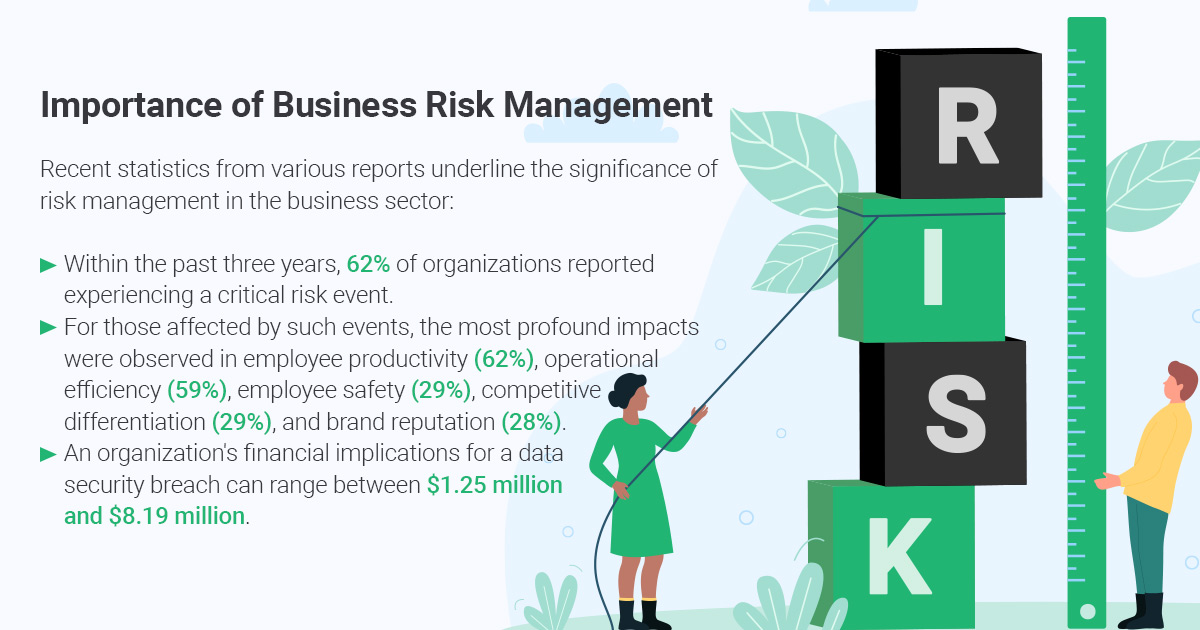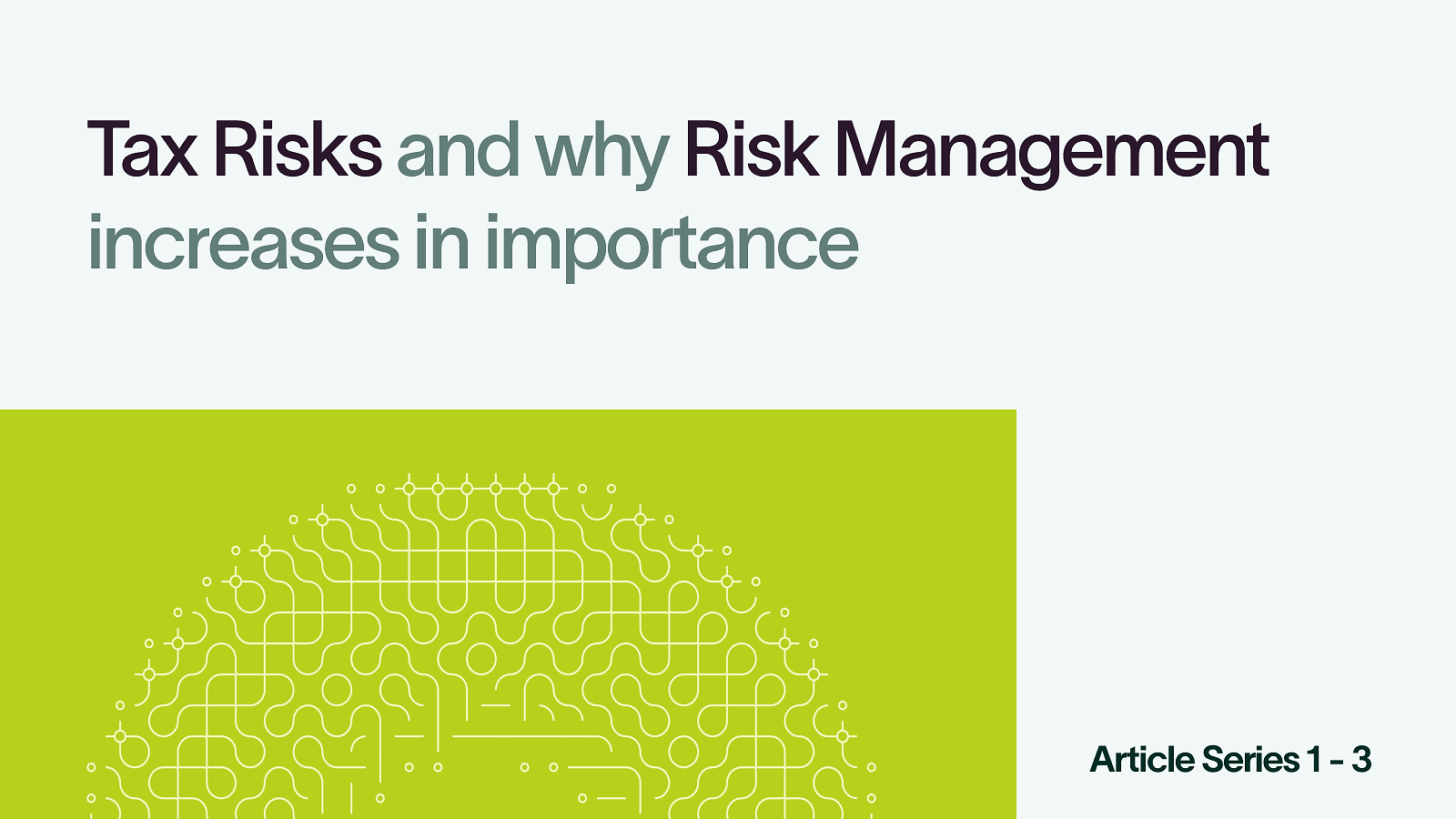The Unquestionable Importance of Risk Management in Safeguarding Business Success
The Unquestionable Importance of Risk Management in Safeguarding Business Success
Blog Article
Why the Importance of Risk Management Can not Be Forgotten in Today's Economic situation
In today's swiftly developing financial landscape, the duty of Risk Management has become crucial. The boosting volatility of markets, coupled with increasing unpredictabilities, requires a durable mechanism to determine and alleviate prospective threats. Failing to do so can result in severe financial and reputational consequences, not simply for individual organizations, yet likewise for the broader economy. This elevates a vital inquiry: can the significance of Risk Management in guaranteeing security and sustainability be overlooked? The complying with discussion aims to discover this in greater depth.
Recognizing the Principle of Risk Management

The Function of Risk Management in Today's Economic situation
Having actually comprehended the principle of Risk Management, we can currently explore its function in today's economic situation. In the context of an unpredictable economic landscape noted by quick technological changes and global occasions, Risk Management becomes an essential critical part, contributing to the stability, sustainability, and overall resilience of economies on both a macro and mini range.
The Effect of Neglecting Risk Management
Ignoring Risk Management can lead to alarming consequences for any kind of organization or economic climate. When potential dangers are not identified, assessed, and minimized, companies subject themselves to commonly considerable and unforeseen damages. These might manifest as economic losses, reputational damages, operational disturbances, or perhaps legal issues. Moreover, in today's unpredictable economic environment, an unforeseen dilemma can swiftly escalate, leaving an ill-prepared business scrambling for survival. The worldwide economic situation of 2008 acts as a raw pointer of the tragic impact that forgeting Risk Management can carry the economic situation at big. Thus, neglecting Risk Management not just endangers specific businesses but can destabilize the entire economic climate, underscoring the crucial function played by reliable Risk Management in today's financial landscape - importance of risk management.
Secret Components of Reliable Risk Management Methods
Efficient Risk Management strategies revolve around 2 essential elements: recognizing potential dangers and executing mitigation procedures. To make certain the security and sustainability of a business, these components should not be neglected. In the following discussion, these important facets will certainly be discovered thoroughly.
Recognizing Potential Risks
Why is determining prospective risks navigate here crucial in any kind of Risk Management technique? Identification of prospective risks is the foundation of any type of effective Risk Management method. Overall, the process of recognizing possible dangers is a vital step in promoting organization durability and advertising lasting development.
Applying Mitigation Steps
Navigating via the volatile business waters, companies get started on the critical journey of implementing mitigation actions as component of their Risk Management methods. These procedures, created to decrease the influence of prospective dangers, form the foundation of a robust Risk Management plan. They encompass numerous strategies, including transferring the Risk to an additional celebration, preventing the Risk, reducing the unfavorable effect or likelihood of the Risk, or also approving some or all the repercussions of a specific Risk.

Case Researches: Successful Risk Management in Practice
In browse around this web-site spite of the intricacies included, there are several instances of effective Risk Management in technique that demonstrate its vital role in company success. As an example, Boeing, the aerospace giant, handled to reduce the Risk of ever-changing currency prices by hedging against the dollar using forward contracts. One more example is Toyota's action to the 2011 Japan earthquake. The automaker promptly established a threat Management team that lessened manufacturing downtime by determining different providers. Similarly, in the economic industry, Goldman Sachs weathered the 2008 financial disaster through a durable Risk Management program that anticipated the subprime home loan situation. These circumstances underscore that effective Risk Management can not just protect companies from possible hazards however additionally enable them to take opportunities.
Future Fads in Risk Management: Adjusting to a Dynamic Economy
Looking ahead, the landscape of Risk Management is positioned for significant modifications as it adjusts to a vibrant economic climate. Technical improvements are expected to reinvent the field, with automation and artificial knowledge playing an essential role in Risk recognition and mitigation. At the exact same time, the increasing intricacy of global markets and the changability of geopolitical events are making Risk Management much more more tough.
Conclusion
In final thought, Risk Management plays an important role in today's interconnected and unpredictable economy. As the economic situation continues to develop, so should risk Management techniques, underscoring its ongoing relevance in an ever-changing organization landscape.
A proper Risk Management technique is not about removing threats totally - a feat nearly impossible in the volatile world of company. Thus, ignoring Risk Management not only threatens private companies however can undercut the whole economic situation, emphasizing the pivotal duty played by efficient Risk Management in today's financial landscape.
Efficient Risk Management strategies rotate around two essential components: recognizing possible dangers and implementing reduction procedures.Why is determining potential risks critical in any type of Risk Management approach? They include various methods, consisting of moving the Risk to another party, avoiding the Risk, minimizing the negative impact or likelihood of the Risk, or even approving some or all the repercussions of a particular Risk.
Report this page